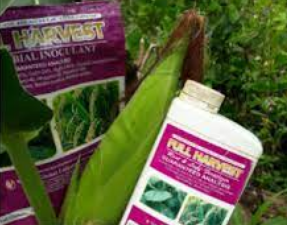Organic farming is a method of agriculture that relies on natural processes to maintain soil fertility and control pests and diseases. Unlike conventional farming, which relies heavily on synthetic fertilizers, pesticides, and herbicides, organic farming uses organic inputs such as compost, cover crops, and natural predators to build healthy soil and manage pests and diseases.
If you want to shift to organic farming, click here.
There are several benefits to organic farming, both for the environment and for human health. In this article, we’ll explore some of the key benefits of organic farming.
Better soil health
Organic farming practices help to build healthy soil by using natural fertilizers such as compost and cover crops. These organic inputs help to increase soil organic matter, which improves soil structure and water-holding capacity. This, in turn, helps to reduce soil erosion and runoff and improves the overall health of the soil.
Reduced pesticide use
One of the main benefits of organic farming is that it relies on natural pest management techniques rather than synthetic pesticides. This helps to reduce the amount of pesticide residues in the environment and on food crops, which can be harmful to human health. By using natural predators and beneficial insects to control pests, organic farmers can also help to maintain a healthy balance of biodiversity on their farms.
If you want to shift to organic farming, click here.
Lower environmental impact
Organic farming practices are designed to minimize the impact of agriculture on the environment. By reducing the use of synthetic fertilizers and pesticides, organic farming helps to protect water quality and reduce air pollution. Organic farmers also often use conservation practices such as crop rotation, cover cropping, and reduced tillage to reduce soil erosion and promote biodiversity.
Improved animal welfare
Organic farming practices often prioritize the welfare of animals, with an emphasis on providing animals with access to pasture and outdoor spaces. This helps to promote animal health and reduce the risk of disease transmission. Organic farmers also avoid the use of growth hormones and antibiotics in animal feed, which can have negative impacts on animal health and the environment.
Healthier food
Organic farming can produce healthier food by avoiding the use of synthetic pesticides and fertilizers. Studies have shown that organic crops often contain higher levels of nutrients such as vitamin C, iron, and magnesium. Additionally, organic food is free of genetically modified organisms (GMOs), which some people prefer to avoid.
If you want to shift to organic farming, click here.
Support for local communities
Organic farming can help to support local communities by providing opportunities for small-scale farmers to sell their products directly to consumers. This can help to promote local food systems and reduce the environmental impact of food transportation. Additionally, organic farming can create jobs in rural communities and promote economic development.
In conclusion, organic farming offers a range of benefits for both the environment and human health. By prioritizing soil health, biodiversity, and natural pest management techniques, organic farmers can produce healthier food while minimizing the impact of agriculture on the environment. Additionally, organic farming can support local communities and promote economic development.




